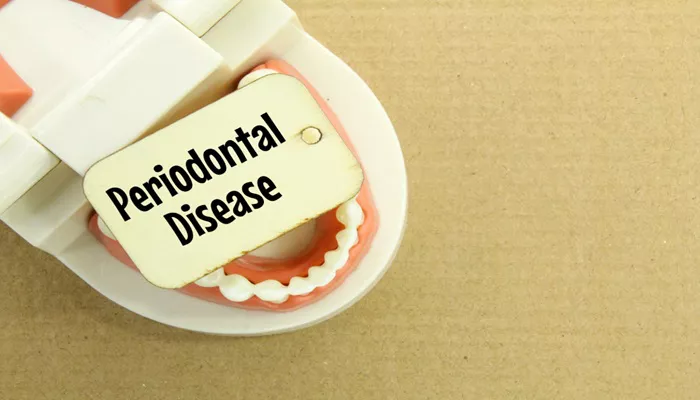Smoking is a well-known risk factor for various health issues, including periodontal disease. This article will explore the relationship between smoking and periodontal disease, detailing how smoking affects gum health, the mechanisms involved, and the importance of quitting smoking for oral health.
What Is Periodontal Disease?
Definition of Periodontal Disease
Periodontal disease, also known as periodontitis, is an advanced stage of gum disease. It occurs when the inflammation of the gums (gingivitis) progresses and affects the supporting structures of the teeth, including the periodontal ligament and the bone. Periodontal disease can lead to tooth loss and has been linked to other health problems, such as heart disease and diabetes.
Causes of Periodontal Disease
The primary cause of periodontal disease is the accumulation of plaque—a sticky film of bacteria that forms on teeth. When plaque is not removed through regular brushing and flossing, it can harden into tartar. Other factors that can contribute to the development of periodontal disease include:
Poor Oral Hygiene: Inadequate brushing and flossing can lead to plaque buildup.
Genetics: Some individuals may be genetically predisposed to gum disease.
Hormonal Changes: Hormonal fluctuations during puberty, menstruation, pregnancy, and menopause can affect gum health.
Medical Conditions: Diseases such as diabetes and autoimmune disorders can increase the risk of periodontal disease.
Tobacco Use: Smoking and other forms of tobacco use significantly increase the risk of developing periodontal disease.
How Smoking Affects Gum Health
The Impact of Smoking on Oral Health
Smoking has a detrimental effect on oral health. It can lead to various issues, including bad breath, stained teeth, and a higher risk of gum disease. Here are some specific ways smoking affects periodontal health:
Reduced Blood Flow: Smoking constricts blood vessels, reducing blood flow to the gums. This decreased circulation can impair the body’s ability to heal and fight infections.
Altered Immune Response: Smoking weakens the immune system, making it harder for the body to combat bacterial infections in the mouth. This can lead to a higher risk of developing gum disease.
Increased Plaque and Tartar Formation: Smokers often have higher levels of plaque and tartar on their teeth. This accumulation can lead to gingivitis, which, if untreated, can progress to periodontal disease.
Changes in Oral Microbiology: Smoking alters the composition of bacteria in the mouth. Smokers may have a higher prevalence of harmful bacteria that contribute to periodontal disease.
Delayed Healing: Smokers may experience slower healing after dental procedures or infections. This can prolong the recovery time from gum disease treatments.
Statistics on Smoking and Periodontal Disease
Numerous studies have shown a strong correlation between smoking and periodontal disease. According to research:
Smokers are twice as likely to develop periodontal disease compared to non-smokers.
The severity of periodontal disease is often greater in smokers. They tend to experience more tooth loss and deeper periodontal pockets.
Approximately 50% of smokers have some form of periodontal disease, compared to 30% of non-smokers.
Mechanisms Linking Smoking to Periodontal Disease
Biological Mechanisms
The link between smoking and periodontal disease can be explained through several biological mechanisms:
Inflammatory Response: Smoking triggers an inflammatory response in the gums. This chronic inflammation can damage the tissues and bone that support the teeth.
Impaired Immune Function: The chemicals in tobacco smoke can impair the function of immune cells, making it harder for the body to fight off infections in the mouth.
Oxidative Stress: Smoking increases oxidative stress in the body, which can lead to tissue damage. This stress can exacerbate inflammation and contribute to the progression of periodontal disease.
Bone Loss: Smoking is associated with increased bone loss around the teeth. This loss of bone support can lead to tooth mobility and eventual loss.
Impact on Treatment Outcomes
Smoking not only increases the risk of developing periodontal disease but also affects the outcomes of treatment. Smokers may experience:
Reduced Effectiveness of Treatment: Non-surgical treatments, such as scaling and root planing, may be less effective in smokers.
Higher Risk of Recurrence: Smokers are more likely to experience a recurrence of periodontal disease after treatment.
Longer Healing Times: Smokers may take longer to heal after periodontal procedures, increasing the risk of complications.
Quitting Smoking and Improving Gum Health
Benefits of Quitting Smoking
Quitting smoking can lead to significant improvements in oral health and overall well-being. Here are some benefits of quitting:
Improved Blood Flow: Quitting smoking increases blood flow to the gums, enhancing healing and reducing inflammation.
Better Immune Function: The immune system begins to recover after quitting, improving the body’s ability to fight infections.
Reduced Risk of Periodontal Disease: Former smokers have a lower risk of developing periodontal disease compared to current smokers. The risk continues to decrease over time after quitting.
Enhanced Treatment Outcomes: Non-smokers typically respond better to periodontal treatments, leading to improved outcomes and faster healing.
Conclusion
Smoking is a significant risk factor for periodontal disease, affecting gum health and treatment outcomes. The detrimental effects of smoking include reduced blood flow, impaired immune response, and increased plaque formation. Smokers are more likely to develop periodontal disease and experience more severe symptoms than non-smokers.
Quitting smoking is one of the best decisions individuals can make for their oral health. It leads to improved blood circulation, better immune function, and a reduced risk of periodontal disease. By taking steps to quit smoking, individuals can enhance their gum health and overall well-being.
Maintaining good oral hygiene, visiting the dentist regularly, and quitting smoking are essential for preventing periodontal disease. Understanding the impact of smoking on gum health empowers individuals to make informed choices about their oral care and health.
Related topics:

